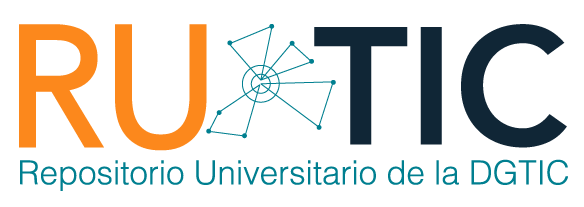| dc.coverage.spatial | MX | |
| dc.date.accessioned | 2018-06-28T04:39:14Z | |
| dc.date.available | 2018-06-28T04:39:14Z | |
| dc.date.issued | 2002-12-30 | |
| dc.identifier.uri | https://ru.tic.unam.mx/handle/123456789/1127 | |
| dc.description | Artículos | |
| dc.description.abstract | Fondo Nacional para la Cultura y las Artes Los trabajos de Walter Ong, filósofo, literato y lingüista, nos permiten comprender cómo funciona la mente oral, rural. Nosotros, de-formados o re-formados por la escolarización, la letra impresa, y la vida urbana, procesamos la información de otra manera. Nuestras maneras de resolver los problemas son distintas, y por eso nos es tan difícil llegar a un acuerdo en situaciones como la de Chiapas. Sólo si cobramos conciencia de cuáles son estas diferencias (en la manera como procesamos la información), podremos sentarnos a la mesa de negociación, con verdaderas posibilidades de éxito a largo plazo. Éste es un claro ejemplo de cómo las humanidades, hoy, siguen siendo útiles para el mundo, y continúan enriqueciendo el saber humano. El presente artículo aplica la teoría de Ong para explicar las diferencias entre el mundo indígena mexicano y su respectivo mundo urbano | es_MX |
| dc.description.abstract | Walter Ong's philosophical, literary and linguistic works, allow us to understand how the oral-rural mind works. On the other hand, our minds have been remodelled by literacy, school and urban life (both for the better and for the worse; and this makes us process information in a diferent way). Our problem-solving strategies vary, too, consequently, and this prevents us from reaching an agreement in situations such as the Chiapas conflict. Only through realizing what is happening, will we be able to find a long-term solution. This is an evident example of how the Humanities, today, are still proving useful for the world, and enriching the whole of human-kind. The present work makes use of Ong's theory in order to explore the Mexican native world, and its urban counterpart | en |
| dc.format | html | |
| dc.format.extent | 82.3 kb | |
| dc.language | spa | |
| dc.publisher | Universidad Nacional Autónoma de México. Dirección General de Cómputo y de Tecnologías de Información y Comunicación. Revista Digital Universitaria | |
| dc.relation.ispartof | http://www.revista.unam.mx/index_dic02.htm | |
| dc.rights | openAccess | |
| dc.source | Revista Digital Universitaria (1607 - 6079). Vol. 3, No.4 (2002) | |
| dc.subject | Oralidad | |
| dc.subject | Chiapas -- Conflicto | |
| dc.title | Yo Siento la Verdad, y tú la Lees, por eso no nos Podemos Entender: La Mentalidad Oral, la Alfabeta, y el Conflicto de Chiapas | es_MX |
| dc.title.alternative | You trust papers, I trust people. That is why we cannot come t terms. orality, literacy and the Chiapas Rebellion | en |
| dc.type | article | en |
| dc.contributor.director | VICTOR MANUEL GUERRA ORTIZ | |
| dc.subject.keywords | Oralidad y escritura, mundo rural-mundo urbano, historia de las mentalidades, conflicto de Chiapas | |
| dc.identifier.url | http://www.revista.unam.mx/vol.3/num4/art36/index.html | |
| dc.creator | María Blanca De Lizaur Guerra | |
| dc.rights.url | http://creativecommons.org/licenses/by-nc-sa/4.0 |
Files in this item
| Files | Size | Format | View |
|---|---|---|---|
|
There are no files associated with this item. |
|||
This item appears in the following Collection(s)
COMPARTE
BÚSQUEDA
Escriba el texto a buscar en DSpace
CONTACTO
El Repositorio Universitario de la DGTIC se edita en la Dirección General de Cómputo y
de Tecnologías de Información y Comunicación (DGTIC), de la Universidad Nacional Autónoma de México (UNAM)
Circuito Exterior s/n, Ciudad Universitaria, Coyoacán, C.P. 04510, México, D.F
Tel: +(52) (55) 56228166 Email: rutic@unam.mx








 ¿Qué es un repositorio...?
¿Qué es un repositorio...? ¿Qué beneficios obtengo...?
¿Qué beneficios obtengo...? ¿Qué tipo de recursos...?
¿Qué tipo de recursos...? Preguntas frecuentes
Preguntas frecuentes